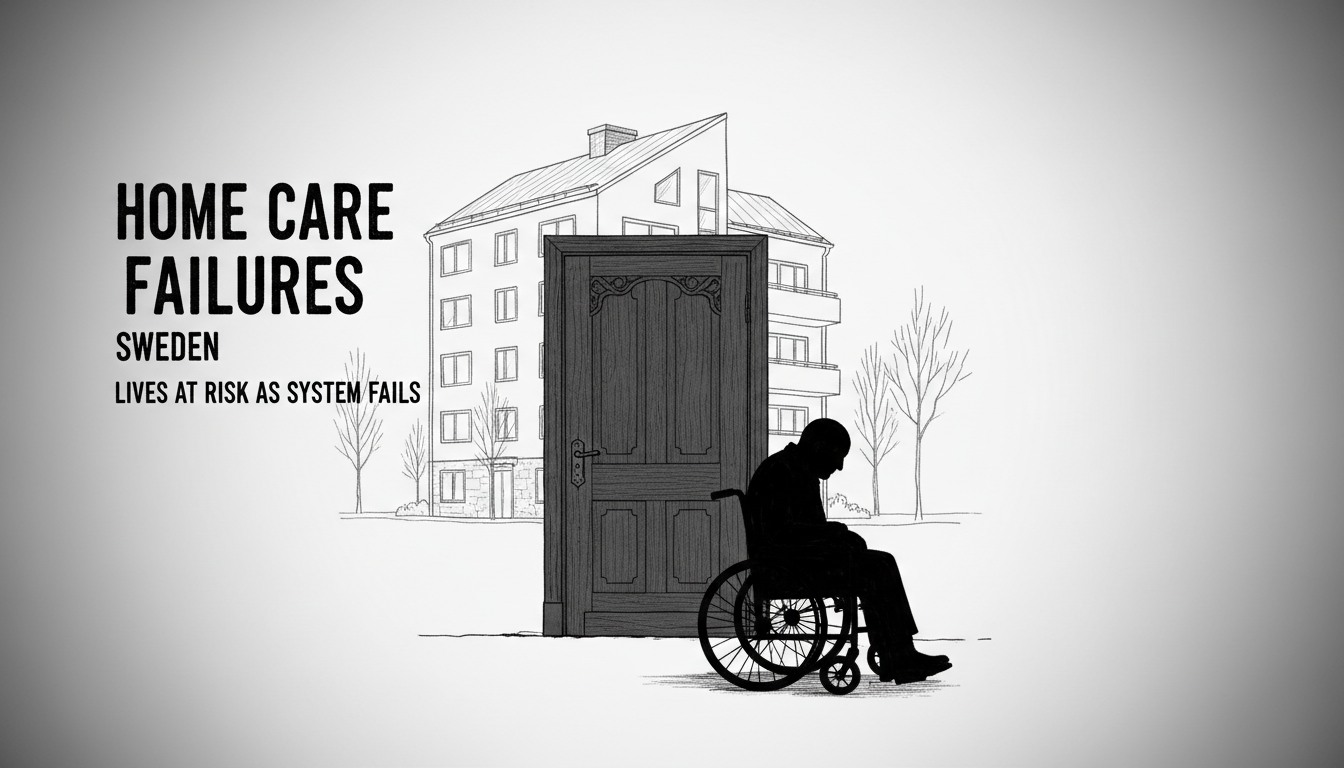Serious failures in Swedish home care services have put elderly lives at risk. A recent investigation reveals at least 15 cases where patients required hospital treatment following care neglect. The findings show systemic problems in how caregivers respond when elderly clients don't answer their doors.
One case involved 80-year-old Laila in Upplands-Bro municipality. She fell from a chair and lost consciousness in November. Despite daily meal deliveries from municipal home care services, staff simply left food outside her door when she didn't answer. Nobody investigated why she wasn't responding. The pile of untouched meal containers grew for seven days before a neighbor intervened.
"When I saw the meal containers, I understood we had to get inside immediately," said neighbor Christina in a statement.
According to the investigation, staff regularly left meals at Laila's door because it took her too long to answer. This violated established procedures requiring staff to either place food directly in refrigerators or prepare meals inside homes. When clients don't answer, caregivers must determine why.
The social care director for Upplands-Bro acknowledged the seriousness of the incident. "We take this very seriously and have therefore investigated it thoroughly," she said. "We have reviewed procedures in dialogue with staff, and these are regularly discussed at workplace meetings."
Laila's case represents a broader pattern. The investigation identified two additional cases where care recipients needed hospital treatment after staff failed to act when they didn't answer doors. In one instance, help arrived after three days, and the patient was diagnosed with pressure sores and malnutrition. Another case noted the patient might not have survived if help had been delayed by just one more hour.
Of all serious incident reports involving home care, at least 11 cases involved unanswered doors. Six of these cases resulted in patient deaths.
The Swedish Health and Social Care Inspectorate handles reports of serious care failures under what's known as Lex Sarah legislation. This requires care staff to report serious misconduct or risks to patient safety. Last year, the inspectorate closed 190 such cases involving home care services.
Experts suggest these numbers likely represent underreporting. Many serious incidents in elderly care probably never reach authorities through formal reporting channels.
Laila has received an apology from the municipality but seeks compensation. "Then I would feel I've received justice and can put this behind me," she said.
This situation highlights critical gaps in Sweden's elderly care system despite its international reputation for quality social services. The cases raise questions about staffing levels, training adequacy, and oversight mechanisms in municipal care services. As Sweden's population ages, ensuring reliable home care becomes increasingly urgent for families across the Nordic region.

